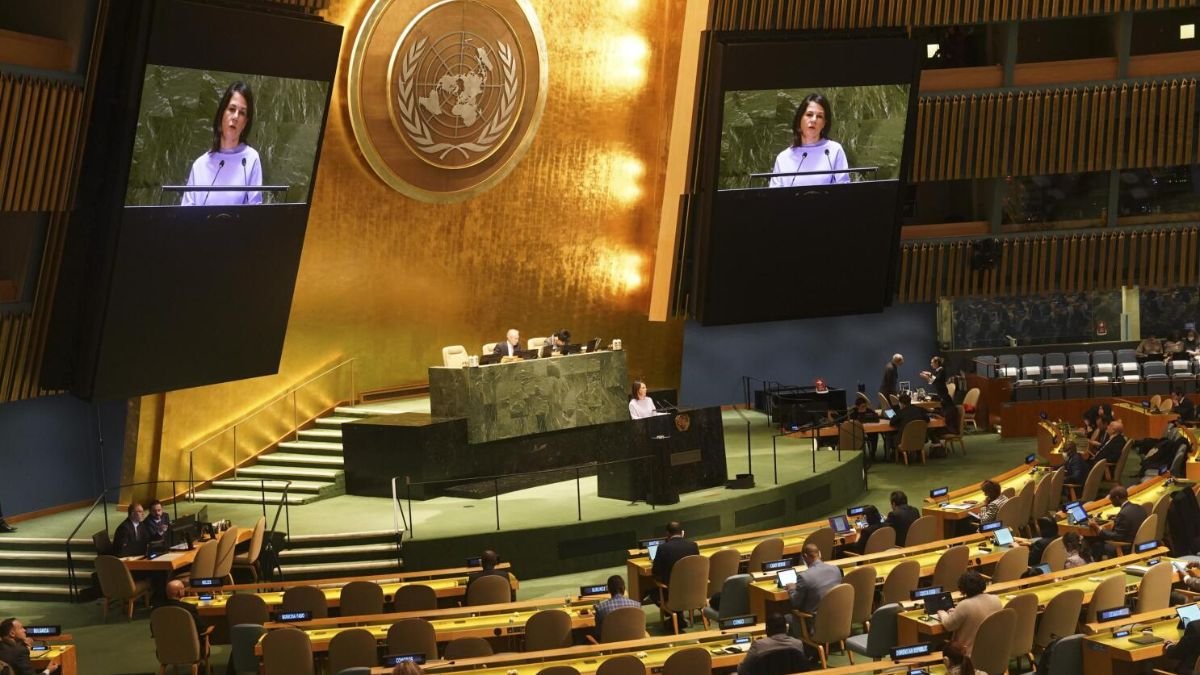In the complex tapestry of global politics, few institutions embody the aspirations for international peace and cooperation as vividly as the United Nations Security Council (UNSC). Tasked with maintaining global peace and security, its mandate is both noble and fraught with challenges. Yet, in recent times, a growing chorus of voices has raised concerns about the efficacy of this pivotal body, particularly focusing on its decision-making process. At the heart of these criticisms lies the UNSC’s voting system, where a single ‘no’ vote from any one of its five permanent members can veto actions or resolutions that could otherwise enjoy broad support.
This mechanism was designed in a different era, aimed at ensuring that major powers remained engaged with the UN system by granting them substantial control over its decisions. However, what might have been seen as pragmatic during the council’s inception now often translates into paralysis. Political maneuverings within the council can stymie international responses to conflicts and crises, leaving observers frustrated and questioning whether it serves today’s needs effectively.
A case in point is the recent ceasefire resolution for Gaza which garnered U.S support — not solely out of diplomatic conviction but partly due to domestic political pressures. This development underscores how geopolitical considerations can influence positions within the council. While passing such a resolution might be heralded as progress towards peace by some quarters, skepticism abounds regarding its real-world impact. The crux of this skepticism isn’t merely procedural; it stems from an understanding that without genuine buy-in from all conflicting parties — an outcome difficult to achieve when resolutions are perceived as being shaped by external political agendas — even well-intentioned initiatives may falter.
Critiquing an institution like UNSC requires us to tread carefully between acknowledging its foundational importance and recognizing its limitations in contemporary contexts. It invites us to question: How can we reform mechanisms conceived in 1945 for a world radically transformed? This is no small task; it demands our collective wisdom, patience, and above all else—empathy for diverse perspectives.
The challenge before us is not merely technical but profoundly moral. It asks us to consider how power should be wielded on an international stage marked by vast inequalities among nations. Should veto power remain concentrated among a select few states? If so, under what conditions? And critically—how do we ensure that such monumental authority is exercised responsibly?
Engaging with these questions doesn’t imply casting aside respect for sovereignty or dismissing security concerns outrightly; rather it involves seeking balance between traditional principles guiding state conduct and evolving norms around humanitarian intervention and collective action against threats like climate change or pandemics.
As advocates for constructive dialogue within conservative circles—and indeed across all ideological spectrums—we must champion reforms that reflect our shared values: justice tempered with mercy; sovereignty balanced against common humanity; tradition enriched through adaptation.
Let’s therefore approach criticism of UNSC not simply as fault-finding but as partaking in a venerable tradition of civic engagement aimed at bettering our shared institutions. By doing so thoughtfully—with logic grounded in empathy—we lay down stepping stones towards more effective governance structures capable of addressing today’s global challenges while respecting tomorrow’s uncertainties.
In essence: Criticism should lead not just to reflection but action—a call echoed throughout history whenever societies strive towards ideals larger than themselves.

Leave a Reply